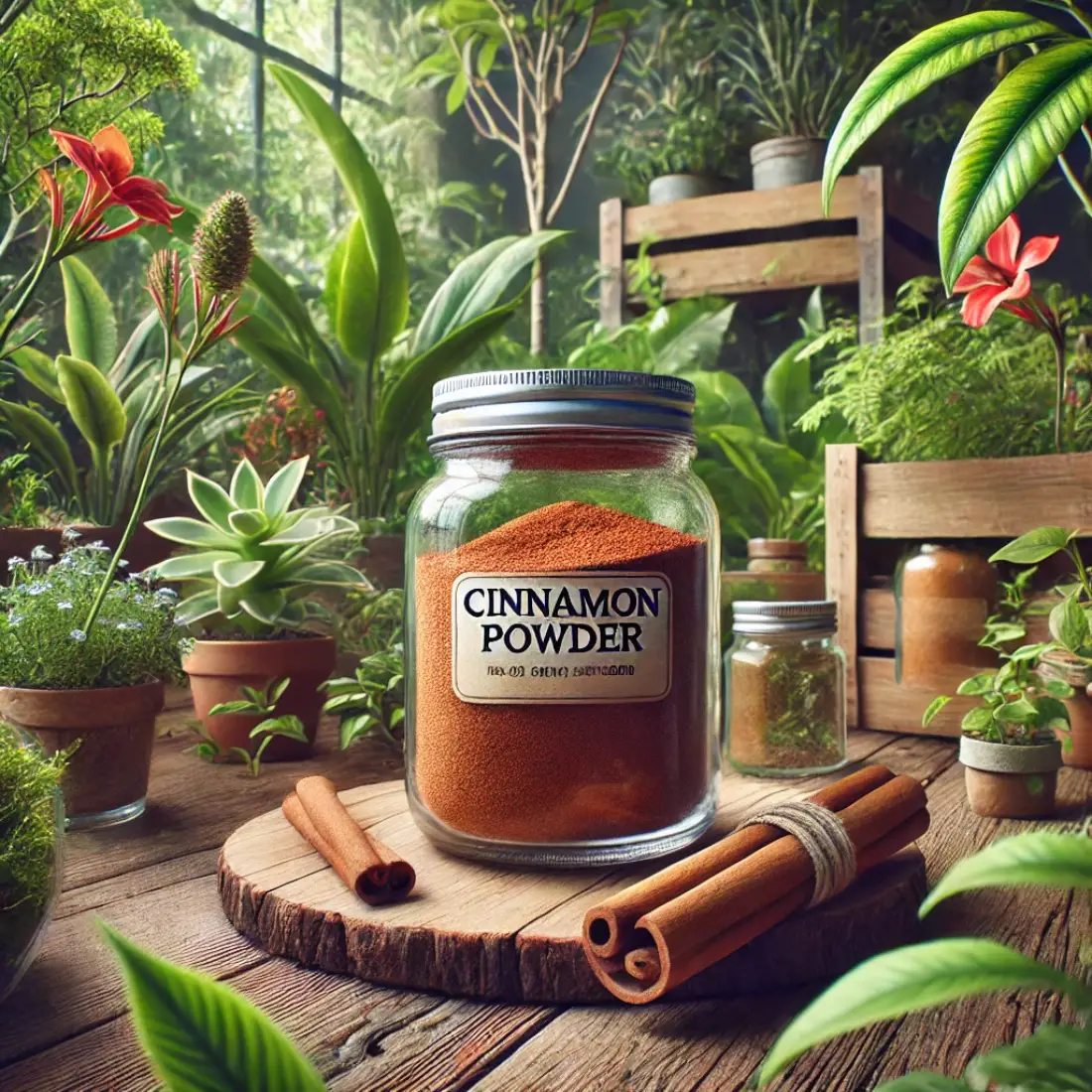Cinnamon powder, derived from the bark of cinnamon trees, is more than just a popular spice. It serves as a potent natural fungicide, making it an excellent alternative to chemical fungicides in gardening and agriculture.
Using cinnamon powder helps control fungal growth on plants, ensuring they remain healthy without exposing them to harmful chemicals. This eco-friendly solution is safe for both the environment and humans, providing a sustainable method for managing plant health.
- Cinnamon powder is an effective natural fungicide.
- It is safer for the environment and non-toxic to humans and pets.
- Easy to use and widely available.
How Cinnamon Powder Works as a Fungicide
Cinnamon powder acts as a fungicide primarily due to its essential oils, particularly cinnamaldehyde, which possess strong antifungal properties. These compounds disrupt the cellular structure of fungi, inhibiting their growth and preventing spore germination.
When applied to soil or plant surfaces, cinnamon creates a protective barrier, deterring fungal infections such as damping-off disease and root rot. Its effectiveness is backed by studies showing significant reduction in fungal activity, making it a reliable and natural option for safeguarding plants against harmful pathogens without resorting to synthetic chemicals.
How to Use Cinnamon Powder as a Fungicide
Using cinnamon powder as a fungicide is simple and effective. Here are some methods to apply it to your plants:
Preparation
- Cinnamon Spray: Mix one tablespoon of cinnamon powder in a quart of warm water. Allow it to steep overnight, then strain the mixture through a coffee filter or cheesecloth to remove solid particles. Pour the liquid into a spray bottle.
- Cinnamon Powder Treatment: Use ground cinnamon directly from the container for soil and plant applications.
Application Methods
- For Soil: Sprinkle cinnamon powder evenly over the soil surface where you have noticed fungal growth. This helps prevent diseases like damping-off, which affects seedlings. For potted plants, apply a light dusting of cinnamon to the soil before planting.
- For Leaves: Spray the cinnamon solution on plant leaves affected by fungal infections, ensuring thorough coverage. Repeat this treatment every 7-10 days or after rain to maintain its effectiveness.
- For Wounds: When pruning plants or if a plant is injured, dust the cut or damaged area with cinnamon powder. This promotes healing and prevents fungal infections.
Frequency and Dosage Recommendations
- Apply cinnamon powder treatments regularly, especially during damp and humid conditions when fungal issues are more likely to arise.
- For preventative measures, apply cinnamon powder to seedlings or new plants once a week.
Safety Precautions and Best Practices
- While cinnamon is generally safe for plants, it’s essential to avoid overapplication, which could potentially harm sensitive plants.
- Conduct a patch test on a small part of the plant before widespread application to ensure there’s no adverse reaction.
- Store cinnamon powder in a dry, cool place to maintain its potency.
Additional Uses of Cinnamon Powder in Gardening
Cinnamon powder offers multiple benefits in gardening beyond its antifungal properties.
Cinnamon as a Rooting Hormone
One of the most popular additional uses is as a rooting hormone. To stimulate root growth, dip the cut ends of plant cuttings into cinnamon powder before planting them in soil. Cinnamon helps promote root development and prevents cuttings from getting fungal infections, increasing the chances of successful propagation.
Cinnamon for Pest Control
Cinnamon powder can also be an effective natural pest repellent. Sprinkle a line of cinnamon around your garden beds or indoor plants to deter common pests like ants, aphids, and mosquitoes. Its strong scent acts as a barrier, keeping these unwanted insects at bay.
Healing Plant Wounds
When plants suffer from cuts or injuries, applying cinnamon powder to the wound can accelerate the healing process. The antifungal and antibacterial properties of cinnamon prevent infections, allowing the plant to recover more quickly.
Soil Health Enhancement
Cinnamon can improve soil health by eliminating harmful fungi and bacteria. Regularly adding a small amount of cinnamon powder to your soil can help maintain a healthy microbial balance, promoting overall plant health.
Cinnamon as a Deterrent for Fungi on Seeds
When planting seeds, dusting them with cinnamon powder before sowing can prevent damping-off disease and other fungal problems, ensuring higher germination rates and healthier seedlings.
Potential Drawbacks and Considerations
While cinnamon powder is a beneficial natural fungicide, it has some potential drawbacks. Overapplication can harm sensitive plants, causing leaf burn or stunted growth. It’s essential to conduct a patch test on a small area before widespread use.
Cinnamon might not be effective against all types of fungi, and in severe cases, more robust treatments may be necessary. Additionally, the powder can attract insects if not properly managed. Therefore, balancing cinnamon use with other integrated pest management practices ensures optimal results and minimizes potential issues in your gardening efforts.
FAQs about Cinnamon Powder
How effective is cinnamon powder against fungal infections?
Cinnamon powder is quite effective against common fungal infections in plants due to its antifungal properties. However, its effectiveness may vary depending on the type and severity of the infection.
Can I use cinnamon powder on all types of plants?
While cinnamon powder is generally safe for most plants, some sensitive species might react adversely. It’s advisable to conduct a patch test on a small area before applying it extensively.
Is cinnamon powder safe for indoor plants?
Yes, cinnamon powder is safe for indoor plants. It can help control fungal infections and pests without harming your indoor environment. Ensure proper ventilation when applying.
How often should I apply cinnamon powder to my plants?
For preventative measures, apply cinnamon powder once a week or after watering. If treating an existing fungal infection, reapply every 7-10 days or after rain.
Can I use ground cinnamon from my kitchen as a fungicide?
Yes, you can use ground cinnamon from your kitchen as a fungicide. However, ensure it is pure cinnamon powder without any additives.
Will cinnamon powder harm beneficial insects?
Cinnamon powder is unlikely to harm beneficial insects when used moderately. Its primary function is to deter pests and prevent fungal infections.
Can I use cinnamon powder in combination with other natural fungicides?
Yes, cinnamon powder can be used alongside other natural fungicides. Combining different treatments can enhance overall effectiveness and provide broader protection.
Does cinnamon powder expire or lose its potency?
Cinnamon powder can lose its potency over time, especially if not stored properly. Keep it in a cool, dry place, and use it within a year for best results.
How can I apply cinnamon powder to large garden areas?
For larger areas, you can mix cinnamon powder with water to create a spray solution. This allows for even application over a broader surface.
Are there any environmental impacts of using cinnamon powder?
Cinnamon powder is eco-friendly and biodegradable, making it a sustainable choice for gardening. It does not leave harmful residues in the soil or water, unlike chemical fungicides.










